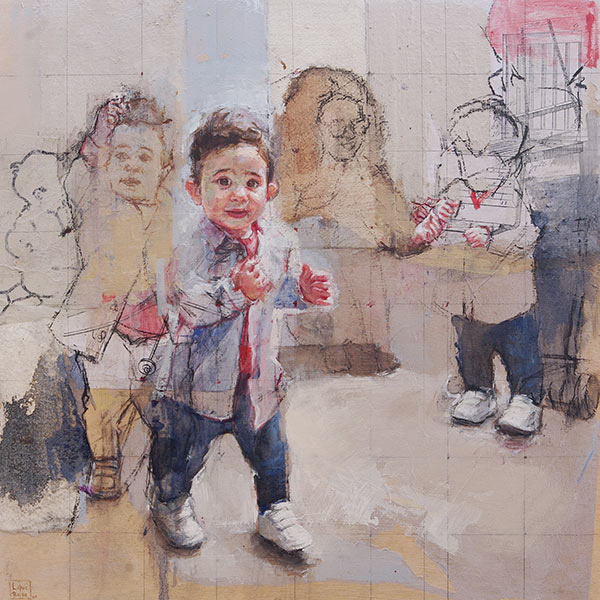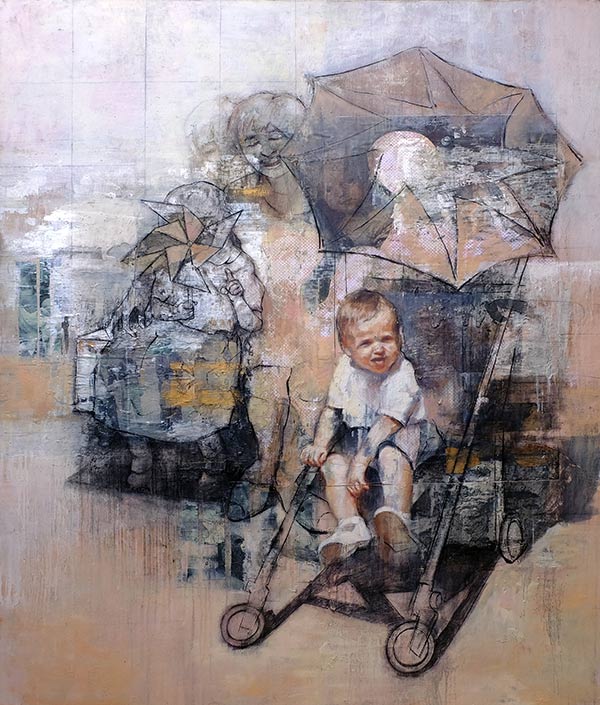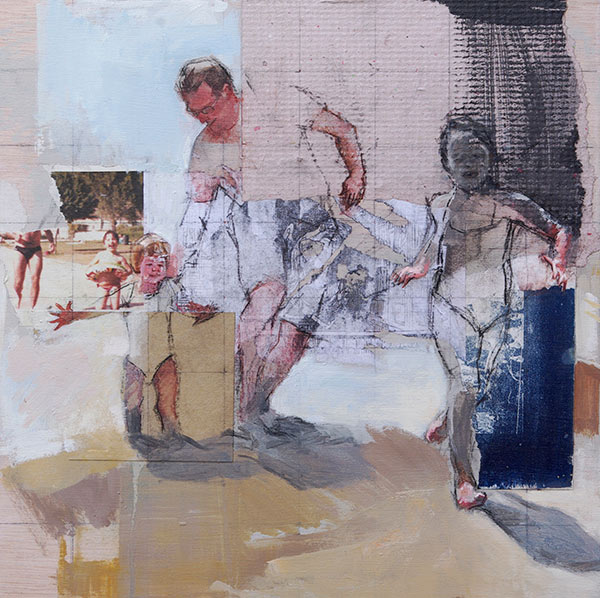Subtotal: $
Checkout-

The Joy of Mending Jeans
-

Zero Episcopalians
-

Making Art to Mend Culture
-

Repairing Relationships
-

Not Everything Can Be Fixed
-

A Life That Answers War
-

Forgiving the Unforgivable?
-

Forgiving Dr. Mengele
-

Editors’ Picks: Faith, Hope and Carnage
-

Editors’ Picks: Klara and the Sun
-

Letters from Readers
-

My Liberal Arts Education in Prison
-

One Parish One Prisoner
-

What’s a Repair Café?
-

Analog Hero
-

The Sacred Sounds of Hildegard of Bingen
-

The Path from Death to Life
-

In Praise of Repair Culture
-

Just Your Handyman
-

To Mend a Farm
-

The Home You Carry with You
-

Portraits of Survival

Three Pillars of Education
In the Bruderhof, as in any society, we see how children flourish when family, school, and community align.
By Heinrich Arnold
December 11, 2023
Children are special. They speak a universal language of joy, wonder, inquisitiveness, mischief, and love. They respond to a mother’s nurture and a father’s loving firmness. They have a natural hunger for learning and an instinct for truth, and flourish when they know they have a place in a community.
Education is the process of preparing children to inherit this world and make it better. It means guiding, equipping, teaching, and liberating the next generation. As a pastor in the Bruderhof community, as well as a father, grandfather, and former teacher, I see three essential pillars of education: family, school, and community. When these three pillars work in harmony of purpose, they are like a three-legged stool that is stable even on uneven ground.
Faith is the foundation on which the three pillars stand or fall. Faith answers the important questions of purpose, direction, and hope, and can sustain families, schools, and communities. I think it is a mistake to divorce or isolate faith from education. In fact, I’d argue that faith and education are inseparable. Education seeks after truth – and not just any truth, but the certain, ultimate, and absolute truth that faith affirms. Abandoning truth leads to doubt, confusion, unhappiness, and division. On the other hand, faith in God’s good and natural order leads to security and confidence. The late Rabbi Jonathan Sacks writes:
One reason religion has survived in the modern world despite four centuries of secularization is that it answers the three questions every reflective human being will ask at some time in his or her life: Who am I? Why am I here? How then shall I live? These cannot be answered by the four great institutions of the modern West: science, technology, the market economy, and the liberal democratic state. Science tells us how but not why. Technology gives us power but cannot tell us how to use that power. The market gives us choices but does not tell us which choices to make. The liberal democratic state as a matter of principle holds back from endorsing any particular way of life. The result is that contemporary culture sets before us an almost infinite range of possibilities, but does not tell us who we are, why we are here, and how we should live.
If modern secular society has failed to answer these fundamental questions, we should welcome the presence of faith in our homes, schools, and communities. This is possible even in a pluralistic society – all the world’s great religions, while not alike, do teach respect and the dignity of human life and offer answers to the important questions.
1. Family
Family is the first pillar of education. A married mother and father forming a loving and stable family is undeniably the best arrangement in which to conceive, bear, and raise children. Many studies have confirmed this fact, which religions have taught for centuries. My Christian faith teaches faithfulness in marriage between one man and one woman; many other faiths teach this as well.

Pilar López Báez, Raul, mixed media on wood panel, 2017. All used by permission.
My mother and father modeled such a loving family and home. They married, raised eight children, and remained together for fifty-one years until their deaths at home, each surrounded by their sons, daughters, and grandchildren. My wife, Wilma, and I have seven wonderful children, three of whom have married. We have five grandchildren and hope for more!
My church, the Bruderhof, places high importance on the sacredness of marriage and prepares couples seeking to be married with rigorous counseling and teaching about the importance of faithfulness and commitment to each other through all difficulties of life. Commitment is vital to give children a chance to thrive. We have a model of this covenant of faithfulness in the biblical account of God’s faithfulness to humankind throughout the millennia. Faithfulness still works, it is still beautiful, and it is still the surest precondition for bringing children into this world and raising them well. Every child deserves both a father and a mother living peacefully together to provide love, stability, and security. That said, I believe Jesus cares especially for children who don’t grow up in such a home, and that he gives single parents the strength to do their best with their situation.
2. Schools
Schools are the second pillar of a child’s education. Caring and dedicated teachers who are passionate about educating and forming children make a good school. Buildings and facilities are wonderful assets but never replace the teacher and a positive environment for learning.
Increasingly, parents are opting to homeschool, for reasons I respect deeply. But more often than not, the main reason is the failure of schools to provide a safe, wholesome space for socialization and qualified instruction, things most parents cannot be expected to provide on their own.

Pilar López Báez, Escenas Familiares III, acrylic on canvas, 2011.
The Bruderhof runs schools from early childhood through high school. Our approach to education emphasizes connection with God’s creation; thorough learning of math, science, writing, and communication; and an appreciation of history, literature, art, music, and crafts. The “head, heart, and hands” philosophy we’ve adopted stresses educating the whole child, bringing together the intellectual, emotional, and physical to train responsible, compassionate, and serving members of society. My grandmother Annemarie Wächter brought to our community the educational vision of her great-granduncle Friedrich Froebel, who invented the kindergarten. His early childhood pedagogy promotes learning through play and exploration of nature. Froebel said, “A child who plays thoroughly and perseveringly…will be a determined adult, capable of self-sacrifice both for his own welfare and that of others.”
3. Community
Community is the final pillar of education, giving support, stability, and identity to families and individuals. Community can help fill some of the gaps that inevitably occur in children’s lives when families struggle due to separation, difficult economic or domestic circumstances, and tragedies.
In my community, the Bruderhof, we make a lifetime commitment to one another. We find common ground and common cause in following the teachings of Jesus to forgive unconditionally, to renounce all violence, to live free from wealth, to serve as the least and lowest, and to give up power over others. We are a fellowship of brothers and sisters, both single and married, who are called by Christ to follow him together in a common life like that of the first church in Jerusalem described in Acts 2 and 4.

Pilar López Báez, La Carrera, mixed media on wood, 2015.
Of course, not everyone finds themselves in a community as structured and supportive as the Bruderhof. But anyone can build community. Children love getting together to celebrate joyous milestones in life: births, birthdays, graduations, baptisms, marriages, anniversaries, and holidays. We all make up community: neighbors, friends from school and work, playgroups, youth groups, dad groups, mom groups, cultural or recreational clubs, sports teams, and faith communities. Strong communities make strong families and strong children. The Indian poet Rabindranath Tagore writes: “Children are living beings – more living than adults, who have built shells of habit around themselves. Therefore it is absolutely necessary for their mental health and development that they should have not only schools for their lessons, but a world whose guiding spirit is personal love.”
Community is not government. The role of government should be to provide support services, structural stability, and rule of law in all public spheres of life, including education. It should protect and respect the role of faith in public life, without impinging on freedom of religion.
Education is the great passing on of the torch from one generation to the next. Strong families, schools, and communities make this possible. Faith is not a separate and cloistered part of life; it informs, vitalizes, and shapes education. Where such education exists, we can have great hope for the future, and joy in each child born into this world. As Tagore writes, “Every child comes with the message that God is not yet discouraged of man.”
Already a subscriber? Sign in
Try 3 months of unlimited access. Start your FREE TRIAL today. Cancel anytime.

































